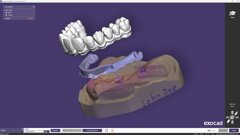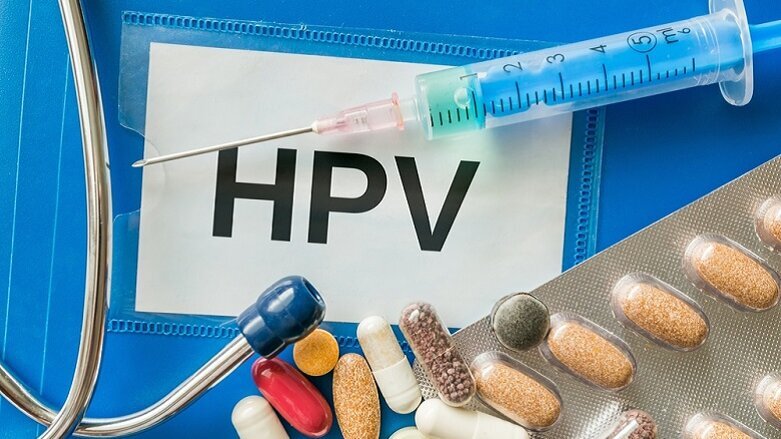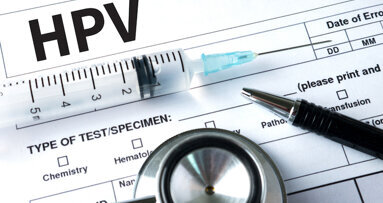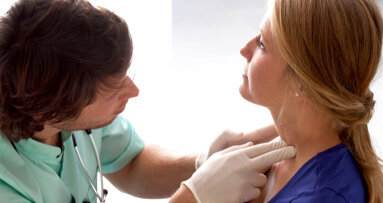ATLANTA, U.S.: The human papillomavirus (HPV) is one of the most commonly sexually transmitted infections and a known cause of cervical cancer, as well as some vulvar, vaginal, penile, anal and oropharyngeal cancers. According to the Centers for Disease Control and Prevention (CDC), the last especially has become the most common site of HPV-linked cancer in the U.S. in the 17 years from 1999 through 2015.
In a recent report released by the CDC, it was stated that the rate of cervical cancer dropped by 1.6 percent per year overall during that period. Meanwhile, the oropharyngeal cancer rate increased by 2.8 percent per year among men and 0.6 percent per year among women. To assess HPV-related cancer rates, the CDC used data from population-based cancer registries that participate in programs of the CDC and the National Cancer Institute. Together, the registries cover almost 97.8 percent of the U.S. population.
Overall, the count of new HPV-related cancer cases swelled from 30,115 in 1999 to 43,371 in 2015, the report authors found. The 2015 number represented a rate of 12.1 cases per 100,000 people, up from 11.2 per 100,000 in 1999. Cervical cancer was the most common type of HPV-linked cancer in 1999, with 13,125 cases, while oropharyngeal cancer cases numbered 9,375, with 74 percent of them in men. By 2015, oropharyngeal cancer cases outnumbered cervical cases by 18,917 to 11,788, with 82 percent of the oropharyngeal cases in males.
The CDC said that changing sexual behaviors may have contributed to the increase in oropharyngeal and anal cancers. The report states: “Unprotected oral sex and receptive anal sex are risk factors for HPV infection. White men have the highest number of lifetime oral sex partners and report first performing oral sex at a younger age compared with other racial/ethnic groups; these risk factors could be contributing to a higher rate of oropharyngeal SCC [squamous cell carcinoma] among white men than other racial/ethnic groups.”
The report, titled “Trends in human papillomavirus–associated cancers—United States, 1999–2015,” was published in the CDC’s Morbidity and Mortality Weekly Report on Aug. 24, 2018.
BALTIMORE, U.S.: A study by researchers at the Sidney Kimmel Comprehensive Cancer Center at Johns Hopkins University in Baltimore has found that a wide ...
BRUSSELS, Belgium/RUGBY, UK: At the recent 2019 European Cancer Summit of the European CanCer Organisation (ECCO), the ECCO Oncopolicy Committee agreed on a...
HELSINKI, Finland: Human papillomavirus (HPV) causes roughly 2% of oral cavity or laryngeal cancers and 31% of oropharyngeal cancers, according to a Lancet ...
AURORA, Colo., U.S.: Since oral cavity cancer is often only discovered late in its development, patients with this advanced form of disease have a 5-year ...
SAN DIEGO, US: As cannabis use becomes more common, its health risks remain under investigation—particularly its impact on cancer. Some users develop ...
ATLANTA, U.S.: Poor oral health and hygiene are known risk factors for oral squamous cell carcinoma (OSCC). Researchers have now found that poor oral health...
At a lecture session at AEEDC Dubai, Prof. Lakshman Samaranayake, Vice-Dean of the Department of Oral and Craniofacial Health Sciences at the University of ...
LOS ANGELES, U.S.: Since current head and neck cancer staging systems include lymph node size and laterality, but focus less on the total number of positive...
LOUISVILLE, Ky., US: Researchers from the US have recently examined the role that oral microbes play in regulating antiviral responses in the oral cavity. ...
CHICAGO, USA: A study conducted in the U.S. has found that the human papillomavirus (HPV) vaccine may help reduce oral infections that cause mouth and ...
Live webinar
Tue. 3 March 2026
11:00 am EST (New York)
Dr. Omar Lugo Cirujano Maxilofacial
Live webinar
Tue. 3 March 2026
8:00 pm EST (New York)
Dr. Vasiliki Maseli DDS, MS, EdM
Live webinar
Wed. 4 March 2026
12:00 pm EST (New York)
Munther Sulieman LDS RCS (Eng) BDS (Lond) MSc PhD
Live webinar
Wed. 4 March 2026
1:00 pm EST (New York)
Live webinar
Fri. 6 March 2026
3:00 am EST (New York)
Live webinar
Tue. 10 March 2026
4:00 am EST (New York)
Assoc. Prof. Aaron Davis, Prof. Sarah Baker
Live webinar
Tue. 10 March 2026
8:00 pm EST (New York)
Dr. Vasiliki Maseli DDS, MS, EdM



 Austria / Österreich
Austria / Österreich
 Bosnia and Herzegovina / Босна и Херцеговина
Bosnia and Herzegovina / Босна и Херцеговина
 Bulgaria / България
Bulgaria / България
 Croatia / Hrvatska
Croatia / Hrvatska
 Czech Republic & Slovakia / Česká republika & Slovensko
Czech Republic & Slovakia / Česká republika & Slovensko
 France / France
France / France
 Germany / Deutschland
Germany / Deutschland
 Greece / ΕΛΛΑΔΑ
Greece / ΕΛΛΑΔΑ
 Hungary / Hungary
Hungary / Hungary
 Italy / Italia
Italy / Italia
 Netherlands / Nederland
Netherlands / Nederland
 Nordic / Nordic
Nordic / Nordic
 Poland / Polska
Poland / Polska
 Portugal / Portugal
Portugal / Portugal
 Romania & Moldova / România & Moldova
Romania & Moldova / România & Moldova
 Slovenia / Slovenija
Slovenia / Slovenija
 Serbia & Montenegro / Србија и Црна Гора
Serbia & Montenegro / Србија и Црна Гора
 Spain / España
Spain / España
 Switzerland / Schweiz
Switzerland / Schweiz
 Turkey / Türkiye
Turkey / Türkiye
 UK & Ireland / UK & Ireland
UK & Ireland / UK & Ireland
 Brazil / Brasil
Brazil / Brasil
 Canada / Canada
Canada / Canada
 Latin America / Latinoamérica
Latin America / Latinoamérica
 USA / USA
USA / USA
 China / 中国
China / 中国
 India / भारत गणराज्य
India / भारत गणराज्य
 Pakistan / Pākistān
Pakistan / Pākistān
 Vietnam / Việt Nam
Vietnam / Việt Nam
 ASEAN / ASEAN
ASEAN / ASEAN
 Israel / מְדִינַת יִשְׂרָאֵל
Israel / מְדִינַת יִשְׂרָאֵל
 Algeria, Morocco & Tunisia / الجزائر والمغرب وتونس
Algeria, Morocco & Tunisia / الجزائر والمغرب وتونس
 Middle East / Middle East
Middle East / Middle East











































To post a reply please login or register